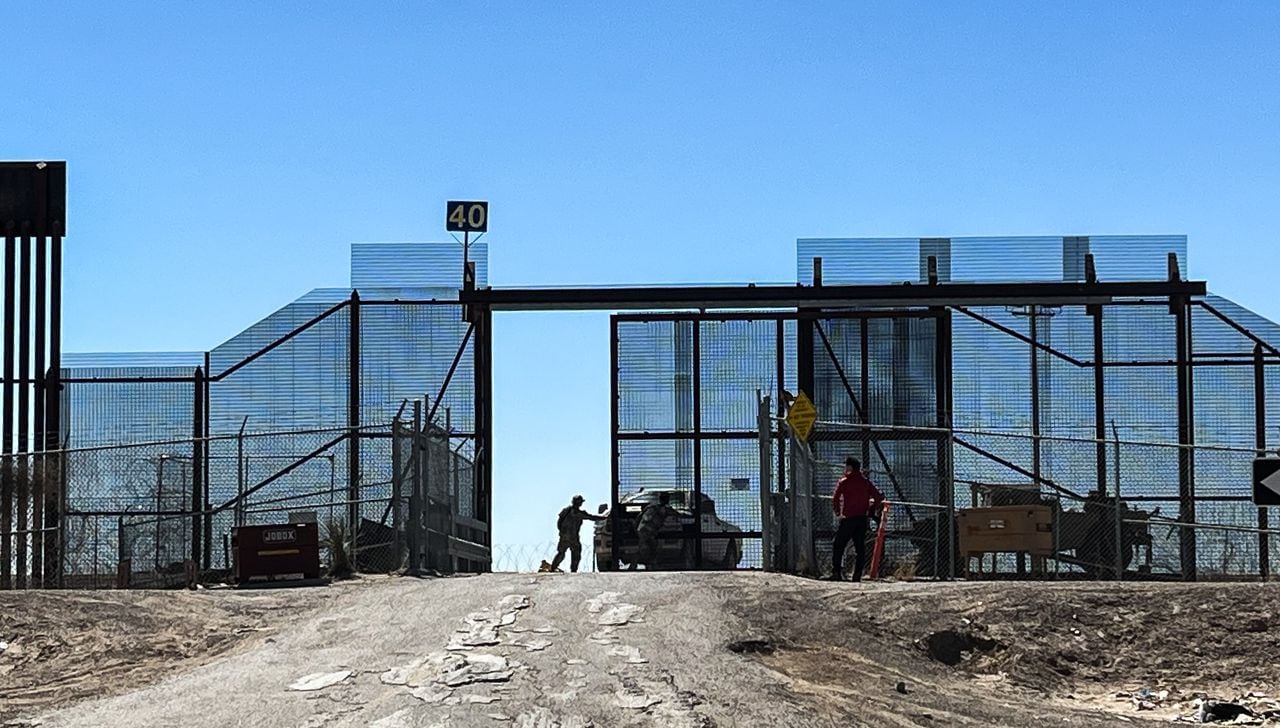Immigration rights groups sue Texas after Abbott signs âshow your papersâ bill into law
Immigrant rights organizations are suing Texas after Gov. Greg Abbott signed a law on Monday that will allow local law enforcement to arrest anyone suspected of entering the state without federal authorization. Advocates say it is one of the most “extreme” immigration bills in the country.
The American Civil Liberties Union of Texas and the Texas Civil Rights Project filed a lawsuit on Tuesday stating the law is unconstitutional and contradicts federal immigration policy. The County of El Paso, Texas; Las Americas Immigrant Advocacy Center and nonprofit American Gateways are also challenging the legislation.
“The fear that this stokes in communities, that’s the point of legislation like this,” Aron Thorn, senior attorney for the Beyond Borders Program at the Texas Civil Rights Project, told Reckon. “Millions of Texans in really robust border communities — folks who have lived here for many years — are right to be concerned about what it will look like for them when this goes into effect.”
Texas Senate Bill 4 has been referred to by immigrant advocates as a “show your papers” law that will cause racial profiling. The legislation has received massive pushback from immigrant rights groups and leaders and is expected to set up a “showdown” between the state and federal government heading into next year.
Three new state laws were created under the bill, creating new offenses that can only be committed by people designated as “aliens,” according to the ACLU. These charges include: illegal entry from a foreign nation, illegal reentry by certain noncitizens and refusal to comply with an order to leave the country and carry misdemeanor and second-degree felony penalties.
Texas judges could immediately deport arrested undocumented people “in lieu of continuing the prosecution.”
Enforcement is prohibited on school grounds, places of religious worship and healthcare facilities. If not blocked by courts, the law will go into effect on March 5.
“Under this novel system, the State of Texas has created its own immigration entry and re-entry crimes,” the complaint reads. “The federal government has no role in, and no control over, Texas’s scheme.”
Advocates believe enforcement will impact not just border communities but all Texans across the state, with people of color more at risk of arrest, jailing and deportation.
“We’re suing to block one of the most extreme anti-immigrant bills in the country,” said Adriana Piñon, the legal director of the ACLU of Texas, in a statement. “Time and time again, elected officials in Texas have ignored their constituents and opted for white supremacist rhetoric and mass incarceration instead.”
Abbott, like other Republican governors, has been embroiled in a battle with the Biden Administration over U.S. immigration policy, with “migrant encounters” at the U.S.-Mexico border this year reaching a new historic high at 2.5 million, according to the Migration Policy Institute.
Advocates said people have been used as pawns, with Texas bussing more than 80,000 refugees to states like California and New York as of December. On Tuesday, an appeals court barred border patrol from removing razor wire along the Rio Grande, signifying a win for Abbott’s policies to deter migration into the state. The barriers force migrants to go through concertina wire, putting them at risk of bodily injury.
Texas Congressional Democrats and members of the Congressional Hispanic Caucus in a letter on Monday urged the U.S. Department of Justice to pursue legal action to prevent enforcement of SB 4 citing concerns over violations of due process rights, asylum case obstruction and endangerment.
“SB 4 is an unlawful attempt to engage in federal immigration enforcement. This law will also interfere with federal efforts to create a safe, humane, and orderly system at the border,” the lawmakers wrote in the letter.
Advocates in Texas and in neighboring states have issued a travel advisory because of “anti-immigrant actions.”
Greg Chen, the senior director of government relations for the American Immigration Lawyers Association, said immigration policies like this could negatively impact people all across the nation, including families and communities of mixed statuses.
“We’re no longer just in this phase of border management,” he said on Friday during a press conference with other immigration advocates. “People could be deported without due process and it’s important to realize that this will be family separation version 2.0.”
Mexican President Andres Manuel Lopez Obrador said on Tuesday that his government will challenge the law, which he called “inhumane,” Reuters reported. The Mexican government has opposed the legislation since prior to its signing, calling it an “anti-immigrant measure that aims to stop the flow of migrants by criminalizing them” in a November news release.
